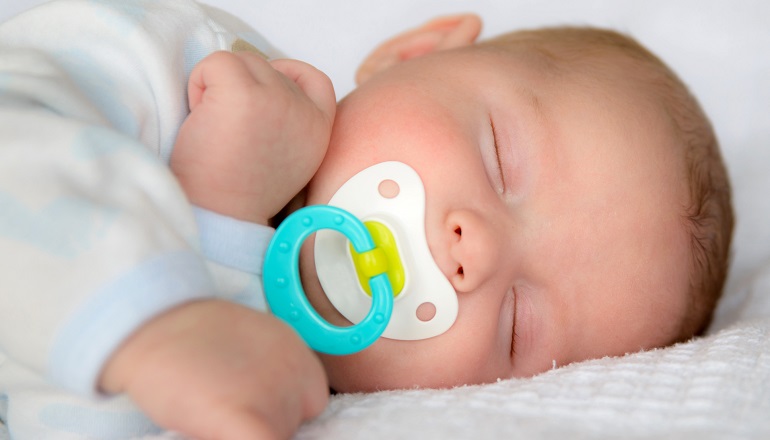Should you discourage your child from sucking his thumb or using a pacifier? This is one of those questions that can really undo a new parent, especially since the experts don’t agree on the answer.
They do agree that sucking is a natural instinct, related to the infant’s ability to suckle the breast moments after birth. Babies soothe themselves by sucking on fingers and thumbs. It’s also clear that some babies need this form of self-comfort more than others. This may be especially true of adopted babies whove experienced stressful circumstances during the first year of life.
“Some children find enormous comfort in thumb-sucking,” says Dr. Jerri Jenista, a pediatrician specializing in children who’ve been internationally adopted. “If your new baby already has the habit of thumb-sucking, let him continue. It’s not a big deal, and most children voluntarily give it up when they get to be school age.”
Of the two options, Dr. Jenista prefers thumb-sucking. “Thumbs are handy, they’re easier to wash and harder to lose,” she quips. But the doctor also believes that a child’s previous experience should determine parental action.
“In Haitian orphanages,” says Dr. Jenista, “children are encouraged to suck and pacifiers are quite common. Whereas, Russian orphanages discourage any sucking at all. The culture frowns upon it.” “The Chinese don’t use pacifiers,” says Jenista, nor has she seen much thumb-sucking among adopted Chinese infants.
Whatever the country of origin (and this includes domestically adopted children), the key, says Jenista, is to follow the needs of the child. A parent’s primary goal is to make the child feel secure. If that means sucking on a thumb or a pacifier, then so be it.
But the doctor doesnt see any reason to introduce pacifiers to older infants who’ve been doing just fine without them. In this case, the pacifier habit may be more of a parental addiction. If the baby cries in a restaurant, the pacifier is offered; if he wakes at night, stick in the pacifier. Before you know it, a pattern is established. (Of course, one could argue that reducing stress on a parent might also benefit the child.)
Is there any risk of dental damage coming from sucking a thumb or a pacifier? In the early months, dentists see little risk in the habit. But if it persists, there may be some distortion of the palate. This can be especially true for thumb-suckers who suck so hard they raise calluses. If this is the case with an older child, age two or three, then it might be wise for parents to consult a pediatric dentist.



